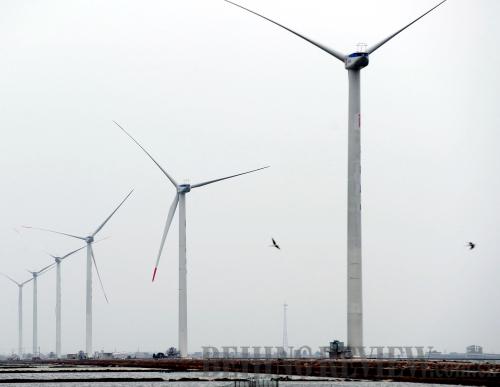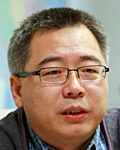|
 |
|
RIDING THE WIND: Tianjin Municipality puts its first wind power plant into operation on September 7. In an attempt to reduce carbon emissions, China has made a push into renewable energies (LIU HAIFENG) |
A series of extreme global weather events, like floods in Pakistan and droughts in Russia, should serve as a call to the world to take action against climate change. But worries have been mounting since global climate talks stalled, partly due to rifts between developed and developing countries. What efforts should be made to force progress in the negotiating process? What role has China played in combating climate change? Su Wei, China's chief climate negotiator and Director-General of the Climate Change Department of the National Development and Reform Commission (NDRC), sat down with Beijing Review reporter Hu Yue to answer these questions and more. Edited excerpts follow:
Beijing Review: The fourth round of this year's international climate talks and the BASIC [China, India, Brazil and South Africa] Ministerial Meeting concluded in Tianjin, China, in early October. What progress was made at the conferences?

Su Wei: Both conferences have borne bountiful fruits. It was the first time that China hosted international climate talks. It shows China's willingness and effort in contributing to the Bali Road Map negotiation. The country made extensive preparations. Christiana Figueres, Executive Secretary of the UN Framework Convention on Climate Change (UNFCCC), hailed the Tianjin conference as one of the most successful climate meetings in the past two decades, and the contribution of the Chinese Government is highly appreciated.
Negotiators upgraded the negotiation text that will be forwarded to the Cancún conference. Though the text was not significantly slimmed down, as expected, it still shows the negotiation is on the right track. The parties exchanged views on a series of key issues and made progress in defining what could be achieved in Cancún. The Tianjin conference provided a platform for countries to bridge differences and seek common ground. This will help lay a solid foundation for success in Cancún.
Following the weeklong talks, ministers of the BASIC countries held a meeting in Tianjin. In a joint statement, the four nations urged developed countries to fulfill their obligations to help developing countries combat global warming.
In Tianjin, negotiators came much closer to working out a new long-term financing plan to cope with climate change. What is China's take on climate financing?
China firmly supports the proposal of climate funding for developing countries. During their industrializations in the past, rich nations largely created the climate crisis due to their mode of production and way of life, but the consequences have to be borne by all nations. Developing countries are particularly vulnerable to the negative effect of climate change. That is why developed countries are now obliged to help their developing counterparts with mitigation of and adaptation to the effects of climate change. This is also in line with the principle of "common but differentiated responsibilities."
Developing countries face the daunting challenges of economic development and poverty reduction while tackling global warming. Learning lessons of the industrialized world, they also hope to get on a greener and more sustainable path of growth. They are in dire need of help from developed countries in areas such as financing, capacity building and technology support. The core of the discussion is how to materialize the financing plan and set a longer term effective mechanism in this regard.
In your opinion, what is the biggest barrier for the global climate talks?
The climate talks are a very complicated process involving economic, social, scientific and ecological issues. But the process has slowed in recent years because many developed countries refused to shoulder their responsibilities or were just paying lip service to their pledges. This is in large part due to a lack of recognition of their historical responsibilities.
The first commitment period of the Kyoto Protocol will expire in 2012, and a second commitment period needs to be finalized. But some developed countries are trying to avoid further responsibilities and completely change the direction and the mandates of the negotiation in the second commitment period. There is a misconception that developing countries are at an advantage since they bear fewer emission reduction obligations and refuse to take actions. The truth is developing countries are also making stiff efforts, though they are entitled to equitable space for future development.
All developing countries including China oppose any proposal to rewrite or abandon the Kyoto Protocol.
|